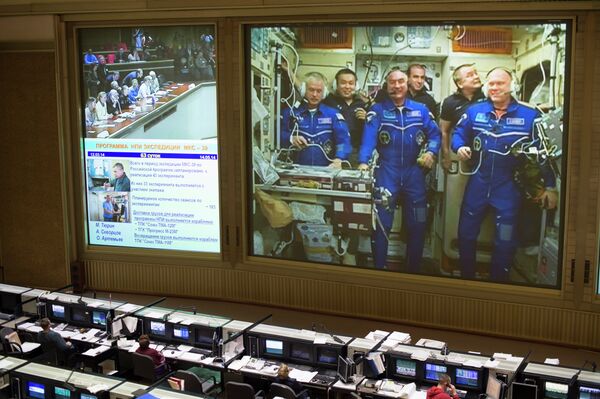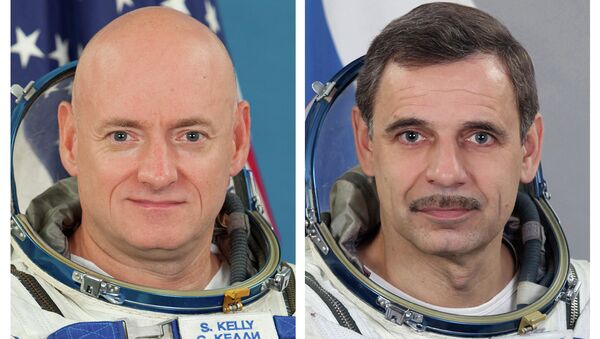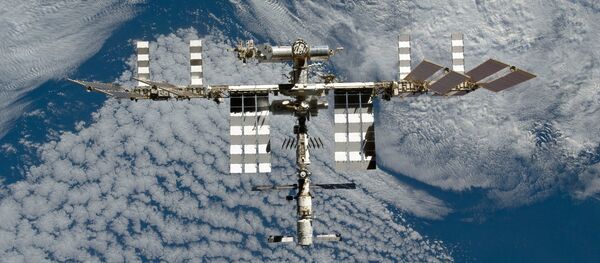The crew includes two space veterans – American Scott Kelly and Russian Mikhail Kornienko – who are to become the first people to spend a whole year straight on the ISS, rather than the usual six months.
"We do our work that we love and we respect each other," Russian cosmonaut Alexander Samokutyaev said of life aboard the ISS after returning to Earth this month.
"Whatever the politicians want to get up to, that is their business," he told journalists at a press conference just after landing.
The cooperation it took to launch the ISS in 1998 was a contrast to the Cold War rivalry of the space race between the Soviet Union and United States. And while current US-Russia relations are closer than ever to Cold War-era levels, life remains symbiotic on the ISS, which neither country could operate on its own.
"The US and Russia need each other," American expert John Logsdon, a member of NASA's Advisory Council, told AFP. "It is like a marriage where divorce is almost impossible."

Because the US is no longer launching Space Shuttle flights, it relies on Russian rockets to take astronauts and vital supplies to the space station. Meanwhile, America supplies the power to run the whole project and Russian cosmonauts often use NASA's communications system.
"Even though we are butting heads on Earth, up on the ISS we can't work without them and they can't work without us," Russian space expert Vadim Lukashevich told AFP. "It's impossible to break up this cooperation."
As tensions over Ukraine spiraled, fears mounted that the worst East-West standoff since the collapse of Communism would impact the space program. But rather than affect work on the ISS, the Ukraine crisis might actually have helped cement it for the longer term.
Russia last month confirmed that it will continue using the International Space Station in partnership with NASA until 2024. NASA had already said the ageing ISS will remain operational until 2024 but Moscow had threatened to pull out and stop financing it by 2020.
However, as Russia's economy has suffered economic strife in part due to sanctions imposed by the West over Ukraine, Moscow realized that it could no longer spare the cash to go it alone.
"Why did we decide to stay on the ISS until 2024? The answer is because we had no other option. The crisis also hit us," said Russian expert Lukashevich.
Beyond 2024, however, when the work on the ISS is set to end, as the situation stands now it seems unlikely that the two sides will agree on any major projects, including a manned mission to Mars.



